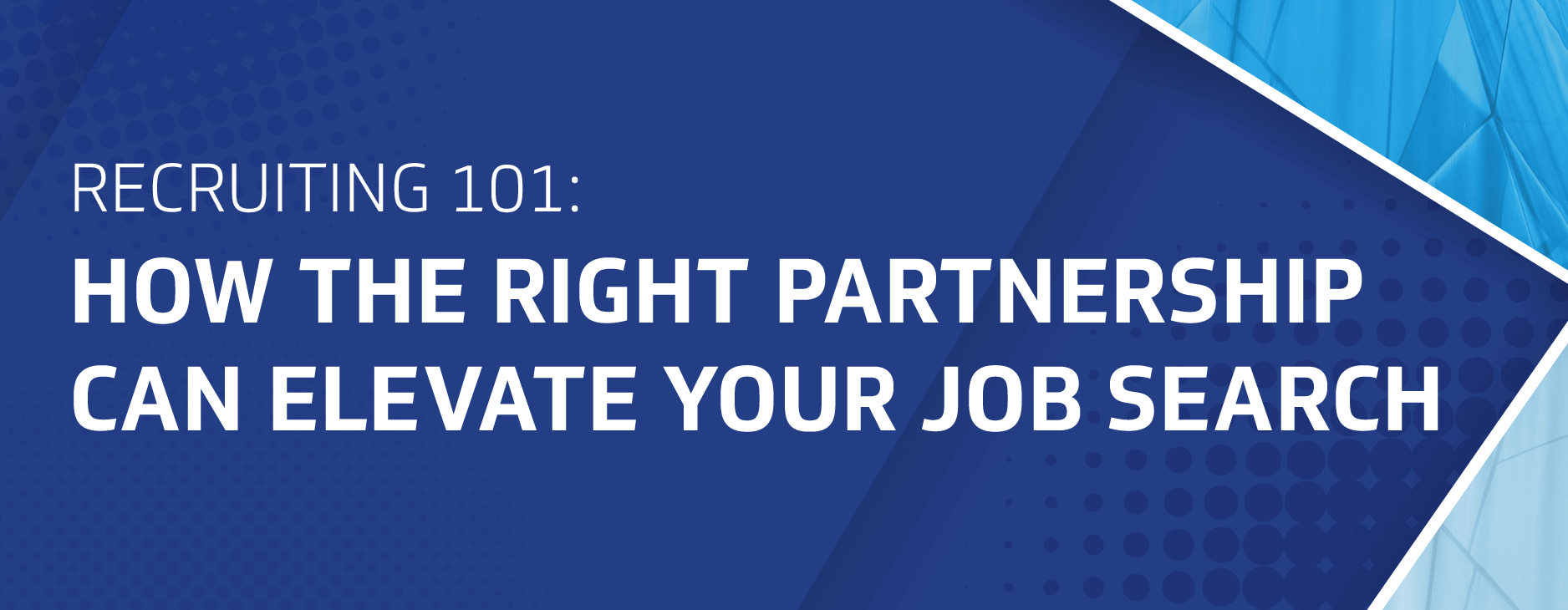
Sam Jackson went nearly his entire college experience at the University of Missouri–St. Louis before he learned about recruiters and how they could help with his job search. It was another two years before he connected with one—a friend of a friend—and he saw the benefits firsthand.
“I was searching on my own and not finding the right opportunities,” Jackson said. “Then I started working with a recruiter, and it all happened so fast. I learned about the job on a Monday, two days later I was interviewing and by the following Wednesday I had a job offer.
“It made me wish I hadn’t waited so long to take that first step with a recruiter.”
Jackson’s experience isn’t unique. Many individuals, whether they’re recent college graduates or have worked at the same company for 10 years, don’t know about the opportunities recruiters can provide. Or if they do, they’re unsure how to start a relationship or find the right fit.
Dispelling common preconceptions and learning more about the process is the first step to successfully partnering with a recruiter who can help you land that dream job.
Where to start
Let’s clear something up: working with a recruiter is free and open to any industry or profession.
Some people hold back from connecting with a recruiter because they’re afraid it will cost them: either initially or in the long run. But there is no fee involved. Instead, it’s all about relationship building.
"The investment there is 20 to 30 minutes of your time to kickstart that partnership with an initial phone call," said Angela Kholmorgen, Kforce’s Talent Director for Finance and Accounting. "And then you have one more person in your corner helping you find that perfect fit for your next job."
While Kforce specializes in technology and finance and accounting, there are firms working in industries of all kinds. A good recruiter will tell you when they have relationships with companies that can help you and when you might be better served partnering with someone else, Kforce Market Vice President Alex Donley said. Honesty and transparency are paramount.
Many times, people don’t know where to start if they’ve never partnered with a recruiter. Often, it’s a friend or family member who recommends someone, Donley said. She encourages people who are looking for a new job to let their network know. A cousin or a former roommate might have worked with a recruiter in the past and be happy to make that introduction.
Job hunters also don't have to wait for a recruiter to make that first move. People who are looking for a job should start by creating a short list of companies they’d like to work with. Then, go online and research what recruiters place people there frequently. Take the initiative and contact them directly.
"If there's a particular company you're excited about, don't be afraid to look at the recruiters for those organizations and introduce yourself," Kohlmorgen said. "LinkedIn can be a great resource to provide introductions that may have not otherwise been there."
Partnering successfully
Once you’ve connected with a recruiter, it’s important to know how to make the most of the partnership.
Jackson said he makes sure to let the recruiter know his top priorities upfront. If he’s looking for a certain commute time, manager style or workload, that’s all important to share.
“Make sure you’re really transparent with a recruiter you’re partnering with,” Kholmorgen said. “What are your non-negotiables? What things are you flexible with?
“We’re not mind-readers—I wish we were. But a great recruiter is going to be a great listener; someone who is going to understand what’s most important to you and how to help you get there.”
Once those parameters are established, a recruiter can help save job seekers time by providing information not found on job listings or in a benefits package. Many recruiters have worked with companies for years, so they can share deeper insights: whether a manager is detail-oriented or gives free reign, how inclusive a company is, what expectations there are for remote work or what the culture is like in an office. Knowing those things up front may help narrow opportunities and prevent someone from taking a job that isn’t the right fit.
Early on, Jackson was nervous that if he turned down a potential job, the recruiter would think he was difficult to work with. That's not the case at all, Kohlmorgen said. But candidates should make sure to provide context for why the position isn't a good fit and what they’re looking for in the next opportunity.
"If you're on the fence or not sure about an opening, it's okay to explore it and go interview with the client and determine if it's the right fit," Donley said. "It's okay to say no, as well. We just want to understand why you're saying no so we can hone in and help you find the right opportunity."
This article was based on content from our May Knowledge Talk. Sign up here to be notified about future sessions.

